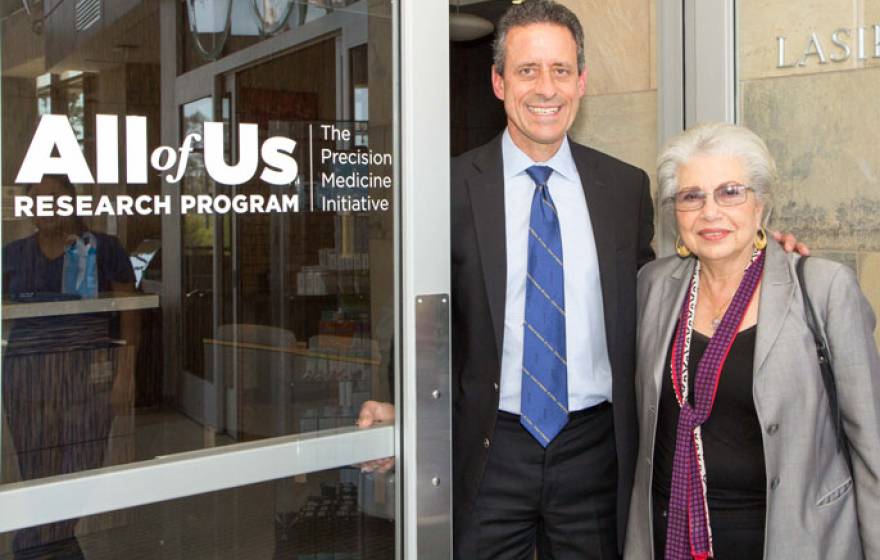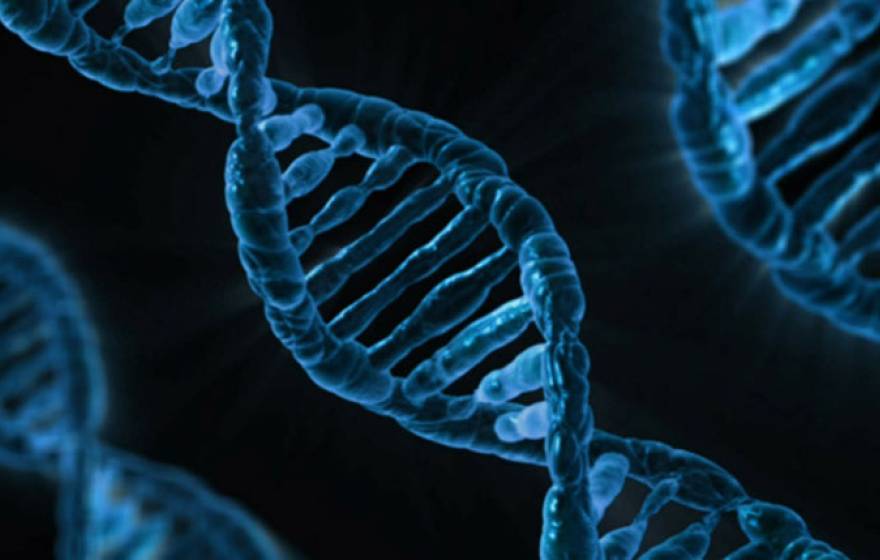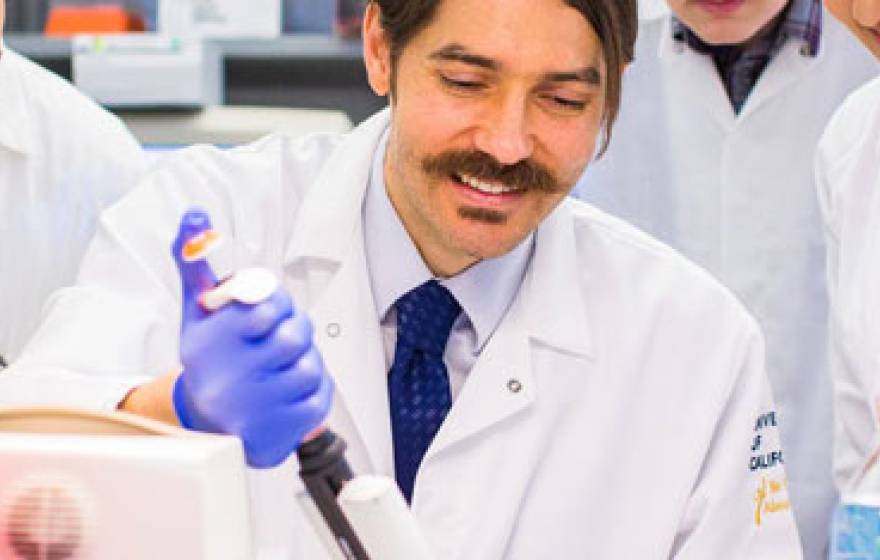Chatterbaby uses artificial intelligence to help determine if baby is hungry, fussy or in pain.
Living in better neighborhood may protect health of kids in poverty
Less stress hormone is found in children with access to green spaces, clean air and quality grocery stores.
A hangover pill? Tests on drunk mice show promise
A new pill may lower blood alcohol levels, helping a hangover and preventing alcohol overdose deaths.
Be one in a million: Massive $1.5B precision medicine research effort kicks off
UC Irvine and UC San Diego are state co-leads of an unprecedented project to gather medical data for new cures.
Frances McDormand headlines performance that sparks dialogue on sudden death
Thousands of years after its first performance, Sophocles’ ‘Ajax’ remains a source of catharsis, the UCSF community finds.
Paralyzed hands move again
A nonsurgical technique allows six patients to turn doorknobs, open water bottles for the first time in years.
Why it's so hard for doctors to understand your pain
Genetic makeup changes how we experience pain, making it difficult to figure out what each patient needs.
Football scuffles, auto injuries may raise risk for Parkinson’s
A shocking new study shows concussion is linked to a 56 percent increase in neurological disease.
Overeating? It may be a brain glitch
New approaches seek to switch off the brain patterns that drive overeating. Here's how they could help you.
A safer, better plastic
Aging plastic leaches harmful chemicals. Rebecca Braslau has made it her life's work to create a safer alternative.
How ‘junk’ DNA plays a role in cancer
Nearly 200 mutations have been identified that play a functional role in cancer, opening new avenues for treatment.
Sure, cancer mutates, but it has other ways to resist treatment
New research exposes how cancer can resist treatment — and how scientists can improve their response.











